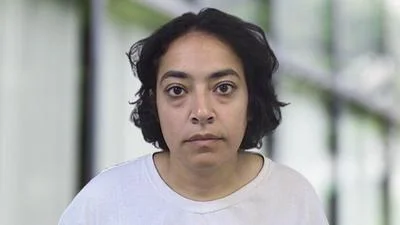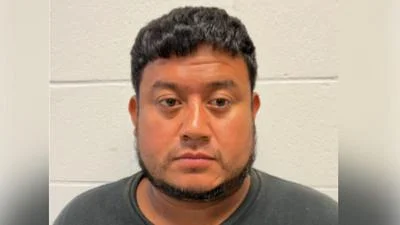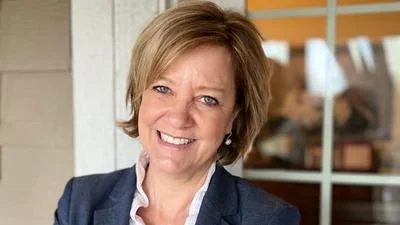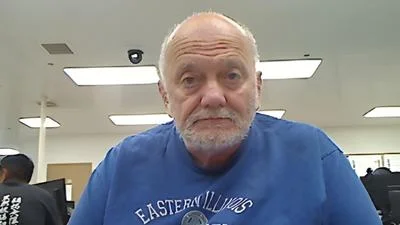Sonya M. Harper, Illinois State Representative for 6th District | Illinois General Assembly
Sonya M. Harper, Illinois State Representative for 6th District | Illinois General Assembly
According to the Illinois General Assembly site, the legislature summarized the bill's official text as follows: "Creates the Family and Medical Leave Insurance Program Act. Requires the Department of Employment Security to establish and administer a Family and Medical Leave Insurance Program that provides family and medical leave insurance benefits to eligible employees. Sets forth eligibility requirements for benefits under the Act. Contains provisions concerning disqualification from benefits; premium payments; the amount and duration of benefits; the recovery of erroneous payments; hearings; defaulted premium payments; elective coverage; employment protection; coordination of family and medical leave; defined terms; and other matters. Amends the State Finance Act. Creates the Family and Medical Leave Insurance Account Fund. Provides phase-in periods for the collection of money and making of claims for benefits under the Act. Effective January 1, 2027."
The following is our breakdown, based on the actual bill text, and may include interpretation to clarify its provisions.
In essence, this bill establishes the Family and Medical Leave Insurance Program in Illinois, administered by the Department of Employment Security, to provide family and medical leave benefits to eligible employees, effective Jan. 1, 2027. The bill outlines eligibility criteria, disqualification conditions, benefit amounts, premium payments, and procedures for recovering erroneous payments. It also creates a fund for benefit disbursement and administrative expenses, financed through employer and business entity contributions of 0.73% of wages. The bill emphasizes protection against employer retaliation for taking leave and mandates reinstatement of employees post-leave. An outreach program will inform workers about their rights. Employees can take up to 26 weeks of leave per 12-month period for various family and health-related reasons, with an extended 52-week period for conditions related to pregnancy and childbirth. The statewide average weekly wage will influence benefit calculations, with a maximum benefit initially set at $1,200 per week.
Sonya M. Harper has proposed another 12 bills since the beginning of the 104th session.
Harper graduated from the University of Missouri-Columbia in 2003 with a BA.
Sonya M. Harper is currently serving in the Illinois State House, representing the state's 6th House District. She replaced previous state representative Esther Golar in 2015.
Bills in Illinois follow a multi-step legislative process, beginning with introduction in either the House or Senate, followed by committee review, floor debates, and votes in both chambers before reaching the governor for approval or veto. The General Assembly operates on a biennial schedule, and while typically thousands of bills are introduced each session, only a fraction successfully pass through the process to become law.
You can read more about bills and other measures here.
| Bill Number | Date Introduced | Short Description |
|---|---|---|
| HB2946 | 02/05/2025 | Creates the Family and Medical Leave Insurance Program Act. Requires the Department of Employment Security to establish and administer a Family and Medical Leave Insurance Program that provides family and medical leave insurance benefits to eligible employees. Sets forth eligibility requirements for benefits under the Act. Contains provisions concerning disqualification from benefits; premium payments; the amount and duration of benefits; the recovery of erroneous payments; hearings; defaulted premium payments; elective coverage; employment protection; coordination of family and medical leave; defined terms; and other matters. Amends the State Finance Act. Creates the Family and Medical Leave Insurance Account Fund. Provides phase-in periods for the collection of money and making of claims for benefits under the Act. Effective January 1, 2027. |
| HB2933 | 02/05/2025 | Amends the Department of Agriculture Law of the Civil Administrative Code of Illinois. Directs the Department of Agriculture to study: (1) the specific actions that can be taken and the practices that can be implemented to mitigate the impacts of drought and climate change on agriculture in the State; (2) the costs, benefits, and feasibility of establishing and implementing financial and technical assistance programs to mitigate the impacts of drought and climate change on agricultural producers in the State; (3) the costs, benefits, and feasibility of using agricultural land management to realize greenhouse gas reductions and maximize carbon sequestration opportunities in the State; (4) the costs, benefits, and feasibility of using floatovoltaics in State waterways; and (5) the costs, benefits, and feasibility of establishing within the Department an Agricultural Drought and Climate Resilience Office for the purpose of providing agricultural producers with the voluntary technical assistance, nonregulatory programs, and incentives necessary to harden the State's agricultural sector to the coming impacts of drought and climate change. Allows the Department to enter into a contract or grant agreement with one or more organizations or institutions with expertise in environmental and agricultural issues for the purpose of completing the tasks delegated to the Department in these provisions. Authorizes the Department, in conducting the required cost-benefit analyses, to take into account the value of ecosystem services. Directs the Department to report its findings and recommendations to the General Assembly within 2 years after the effective date of the amendatory Act. Effective immediately. |
| HB2557 | 02/04/2025 | Creates the Cannabis Delivery License Act. Provides that a Cannabis Delivery License shall authorize the license holder to deliver cannabis or cannabis-infused products purchased from a licensed dispensary directly to consumers within Illinois. Sets out application and operational requirements. Provides for penalties and enforcement. Requires the Department of Financial and Professional Regulation to adopt rules. Effective immediately. |
| HB1607 | 01/23/2025 | Creates the Commission on Eliminating Food Deserts Act. Establishes the Commission on Eliminating Food Deserts in the Office of the Lieutenant Governor for the purpose of reviewing the effectiveness of current State-led efforts to eliminate food deserts in Illinois and advising the General Assembly on policy, funding, initiatives, and best practices for the elimination of food deserts in Illinois. Describes the membership of the Commission. Provides that the Commission shall convene at the call of the chairperson and meet as frequently as necessary to carry out its duties. Provides that the Office of the Lieutenant Governor shall provide administrative and other support to the Commission. Provides that commissioners shall serve without compensation but shall be reimbursed for their reasonable and necessary expenses from funds appropriated for that purpose. Provides that the Commission shall submit a report to the Governor and the General Assembly on or before January 1, 2027, with annual addenda thereafter. Provides that the Act is repealed and the Commission is dissolved if 90% of food deserts in this State have been eliminated, with certain requirements. Defines terms. |
| HB1608 | 01/23/2025 | Amends the Environmental Protection Act. Requires the Environmental Protection Agency to annually review and update the underlying data for, and use of, indicators used to determine whether a community is designated as an environmental justice community and to establish a process by which communities not designated as environmental justice communities may petition for such a designation. Provides that an applicant for a permit for the construction of a new source that will become a major source subject to the Clean Air Act Permit Program to be located in an environmental justice community or a new source that has or will require a federally enforceable State operating permit and that will be located in an environmental justice community must conduct a public meeting prior to submission of the permit application and must submit with the permit application an environmental justice assessment identifying the potential environmental and health impacts to the area associated with the proposed project. Provides requirements for the environmental justice assessment. Contains provisions regarding public participation requirements for permitting transactions in an environmental justice community. Provides that, if the Agency grants a permit to construct, modify, or operate a facility that emits air pollutants and is classified as a minor source, a third party may petition the Pollution Control Board for a hearing to contest the issuance of the permit. Contains provisions regarding environmental justice grievances. Defines terms. Contains other provisions. |
| HB1331 | 01/14/2025 | Amends the Network Adequacy and Transparency Act. Provides that the Department of Insurance shall consider establishing ratios for providers of genetic medicine and genetic counseling. |
| HB1228 | 01/10/2025 | Amends the Retailers' Occupation Tax Act. In a provision concerning the rate of tax, provides that the definition "prescription and nonprescription medicine and drugs" includes cannabis or cannabis-infused products purchased from a dispensing organization under the Cannabis Regulation and Tax Act by a cardholder under the Compassionate Use of Medical Cannabis Act. Amends the Cannabis Regulation and Tax Act. Provides that the tax imposed under the provisions is not imposed on cannabis-infused product that is subject to tax under the Compassionate Use of Medical Cannabis Program Act or cannabis or cannabis-infused product sold to a cardholder under the Compassionate Use of Medical Cannabis Program Act. Effective January 1, 2027. |
| HB1229 | 01/10/2025 | Amends the Medical Patient Rights Act. Provides that a patient who is covered under a policy of accident and health insurance, dental plan, or vision care plan is entitled to receive medical, dental, or eye care services without being required to pay an amount in excess of the estimated cost share, copayment, or deductible before those services are provided if such services are typically covered under the policy of accident and health insurance, dental plan, or vision care plan. |
| HB1230 | 01/10/2025 | Amends the Environmental Protection Act. Creates the Air Quality Enforcement and Mitigation Fund. Makes a conforming change to the State Finance Act. Provides that the Environmental Protection Agency shall expend 30% of moneys from the Fund for staffing and other functions of the Agency that benefit environmental protection communities and are related to one or more specified purposes. Directs the Agency to establish an Air Quality Community Impact Grant Program to provide grants to nonprofit entities, local health departments, local environmental departments, and school districts to carry out the purposes of the Act. Requires 70% of moneys from the Fund to be expended for grants under the Program for specified purposes in communities affected by violations of the Act. Requires the Agency to adopt rules to implement the Program. Provides that the Agency, in collaboration with environmental interest groups, shall develop a process to identify environmental protection communities. Requires the Agency to post on its website and make publicly available an annual report on the purposes for which grants were awarded under the Program. Contains other provisions. Effective immediately. |
| HB0064 | 01/09/2025 | Amends the Illinois Food, Drug and Cosmetic Act. Provides that, notwithstanding any other provision of law, a food, food ingredient, dietary supplement, cosmetic, or other consumer product shall not be considered adulterated solely because it contains hemp, hemp-derived cannabinoids, including, but not limited to, Delta-9 tetrahydrocannabinol (THC), Delta-8 THC, tetrahydrocannabinolic acid (THCa), or any hemp product, provided that the hemp used in the product complies with the definition of "hemp" as specified in federal law. Amends the Industrial Hemp Act. Conforms several provisions in the Act to federal regulations under the Domestic Hemp Production Program, including (i) definitions, (ii) requirements for the application for a license to cultivate hemp, and (iii) rulemaking requirements for the Department of Agriculture. Provides that the Department of Agriculture shall adopt rules for the distribution and retail sale of hemp products under conditions in specified provisions of the Act. Provides that hemp products that contain cannabinoids, that are intended for human consumption, and that are designated for retail sale within Illinois (i) must meet specified requirements, including federal requirements and rules adopted by the Department of Public Health, and (ii) must be distributed or sold in a container that includes specified information. Provides that hemp products that are intended for inhalation or ingestion and contain detectable amounts of hemp cannabinoids may not be sold in this State to a person who is under 21 years of age. Provides that hemp products distributed or sold in violation of specified provisions in the Act shall be considered adulterated or misbranded pursuant to the Illinois Food, Drug and Cosmetic Act and all other applicable State laws. Defines terms. Makes technical changes. |
| HB0065 | 01/09/2025 | Creates the Remedy to Remove Unauthorized Persons from Residential Real Property Act. Allows a property owner or authorized agent to request a law enforcement officer to remove an unlawful occupant of a residential dwelling if certain conditions are met. Creates a complaint form for the property owner to complete and give to a law enforcement officer to use when requesting the removal of an unlawful occupant. Provides that if the law enforcement officer verifies the information in the form, the law enforcement officer must serve a notice on the unlawful occupant to vacate the dwelling. Requires the unlawful occupant to vacate the dwelling within 3 business days of receiving the notice. Authorizes the law enforcement officer, if appropriate, to arrest any person for trespass, outstanding warrants, or any other legal cause. Authorizes the property owner to request the law enforcement officer to remain on the premises to keep the peace while the locks are changed or the personal property of the unlawful occupant is removed. Authorizes the law enforcement officer to charge reasonable fees to provide notice and remain on the premises. Allows a person to bring an action for wrongful removal, and allows the property owner to file an answer contesting the claims of the person bringing the action. Amends the Criminal Code of 2012. Provides that a person commits a Class 4 felony if he or she lists or advertises residential real property for sale knowing that the purported seller has no legal title or authority to sell the property, or rents or leases the property to another person knowing that he or she has no lawful ownership in the property or leasehold interest in the property. Provides that a person commits a Class A misdemeanor when he or she enters upon the land or premises of another and resides on such land or premises for any period of time knowingly acting without the knowledge or consent of the owner, rightful occupant, or an authorized representative of the owner. |
| HB1223 | 01/09/2025 | Amends the Racial Impact Note Act. Provides that by December 31, 2025, the Office of the Governor shall submit a report to the General Assembly with recommendations regarding the production of statements or notes that a member of the General Assembly may request under the Act. Requires the report to include certain recommendations on methodology, formatting, and a course of training for personnel of certain State agencies. Provides that subject to appropriation, the Office of the Governor may contract with an entity or entities that have expertise in racial impact or equity impact assessments for the production of the report. Repeals these provisions on January 1, 2027. Effective immediately. |
| HB1227 | 01/09/2025 | Creates the Enslavement Era Disclosure and Redress Act. Requires each contractor that participates in a competitive bid with the State to review its records for evidence of the contractor's or a related party's participation in slaveholding or the slave trade and to make certain disclosures with respect to that participation. Contains provisions concerning notice of public hearings following the disclosures. Provides that the Illinois Office of Equity shall appoint an administrator to oversee the program. Provides that each contractor that has disclosed participation in slaveholding or the slave trade shall provide the State with a statement of financial redress at the time of submitting its bid. Contains provisions creating a Redress Fund. Amends the State Finance Act to make conforming changes. Effective immediately. |






 Alerts Sign-up
Alerts Sign-up